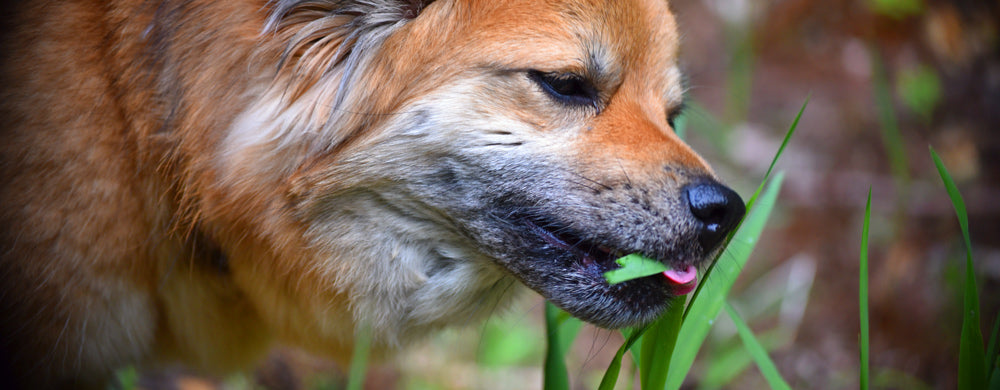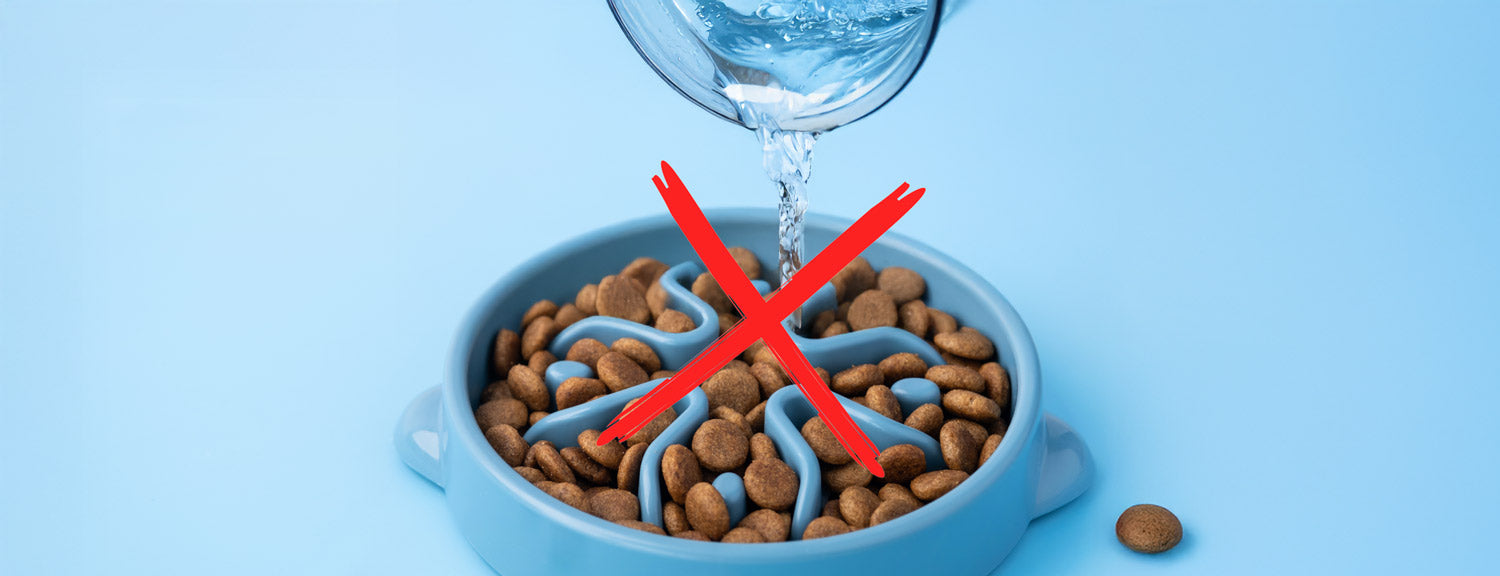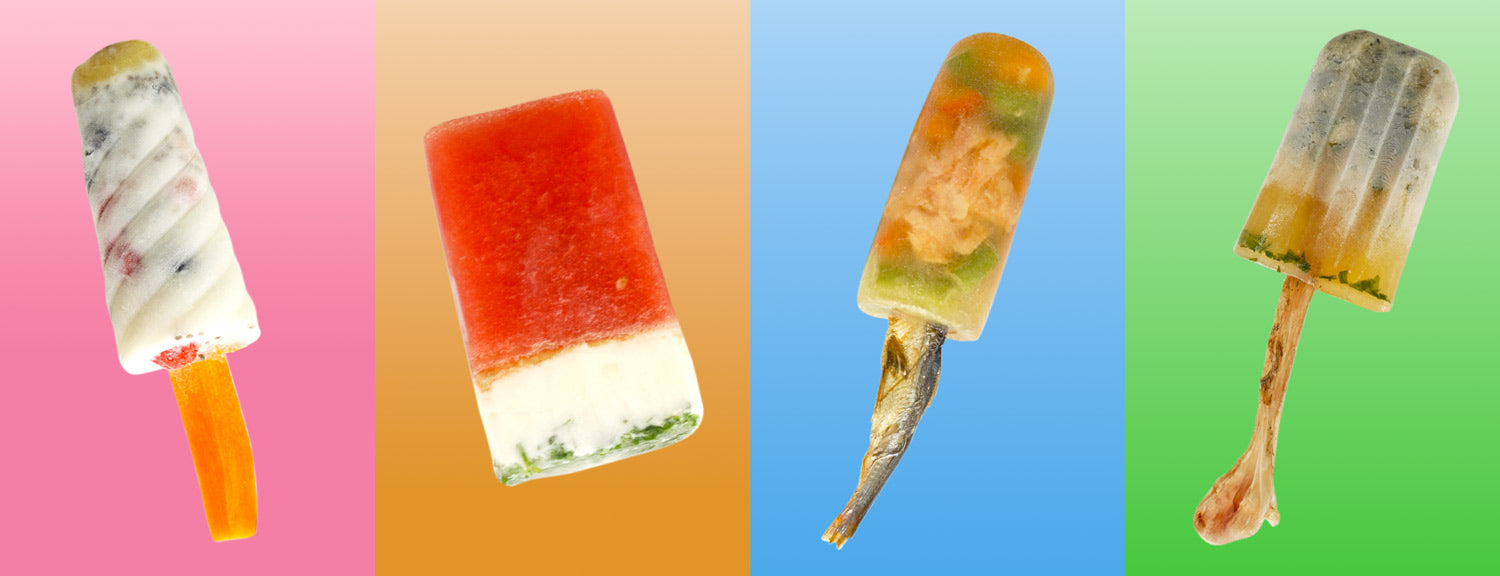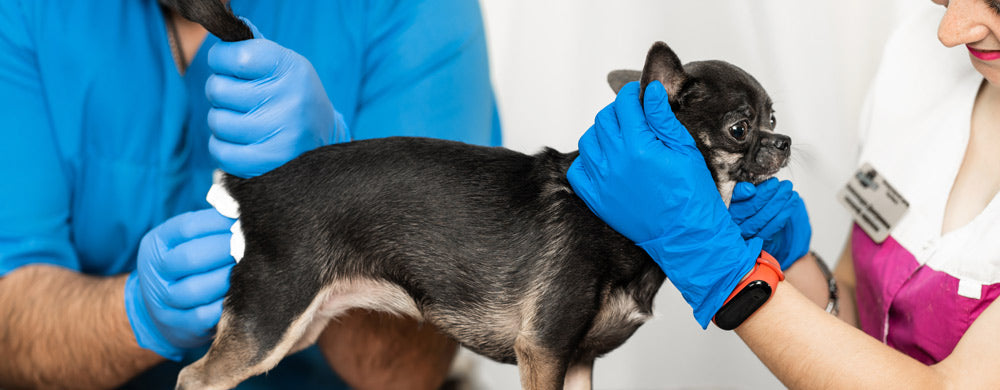Your basket is empty

Why Do Dogs Eat Grass?
May 16, 2024 2 min read
Have you ever observed your furry friend munching on grass in the garden and wondered why they do it? This peculiar behaviour has puzzled dog owners for years and despite how common grass eating in dogs is, the reasons behind it remain somewhat mysterious.
Watch our video where we delve into the various explanations for why dogs eat grass, shedding light on this intriguing aspect of canine behaviour.
***
While there isn't a single definitive answer as to why dogs eat grass, experts have identified several potential reasons behind this habit.
1. Boredom
Just like humans, dogs can experience bouts of boredom. When left with little stimulation or activity, they may turn to grass munching as a way to pass the time and alleviate their restlessness.
2. Taste and Texture
For some dogs, the taste and texture of grass are simply irresistible. The succulent blades offer a refreshing change from their regular diet and can provide a sensory experience that appeals to their natural instincts.
3. Anxiety
Anxiety and stress can manifest in various ways in dogs, including compulsive behaviours like grass eating. Some dogs may turn to grazing as a coping mechanism when feeling anxious or overwhelmed.
4. Upset Stomach
Believe it or not, dogs may instinctively eat grass to soothe an upset stomach. The roughage can help induce vomiting, providing relief from gastrointestinal discomfort or helping them expel indigestible material.
5. Nutritional Deficiency and Self-Selection
In certain cases, dogs may seek out specific nutrients found in grass to supplement their diet. This behaviour, known as self-selection, is thought to be an instinctual response to nutritional deficiencies. Therefore, it's essential to ensure that your dog's diet is well-balanced and meets their nutritional needs.
6. Attention Seeking
Dogs are incredibly perceptive animals and often crave attention from their human companions. Some may resort to eating grass as a way to get attention or elicit a reaction from their owners, especially if they've received attention for this behaviour in the past.
7. Pica
Pica is a condition characterised by the consumption of non-food items, including grass, dirt, or rocks. While the exact cause of pica in dogs is not fully understood, it may be linked to underlying medical or behavioural issues and should be addressed with the guidance of a veterinarian.
***
While the sight of your dog grazing on grass may initially raise eyebrows, it's essential to approach this behaviour with understanding and vigilance. In most cases, occasional grass eating is harmless and may even offer some benefits. However, if you notice excessive or compulsive grass consumption, or if it's accompanied by other concerning symptoms, it's best to consult with your veterinarian to rule out any underlying health issues.
Also in Pet Advice

Should You Add Water to Your Dog’s Kibble? Here’s What the Science Says
August 14, 2025 7 min read
Should you add water to your dog’s kibble? Discover the science-backed pros, cons, and better alternatives like bone broth and fresh food to improve hydration, digestion, and overall canine health...

DIY Frozen Dog Treats Your Pup Will Love
June 27, 2025 4 min read
Summer heat can be dangerous for dogs, making hydration more important than ever. Learn how to spot signs of dehydration, boost your pup’s water intake, and create fun, frozen recipes to keep them happy and healthy all season long.

Why Is My Dog Scooting? Common Causes and How Diet Can Help
May 09, 2025 4 min read
If your dog is scooting or smells fishy, it could be due to blocked or irritated anal glands. Learn what causes blocked anal glands, which dogs are most at risk, and how simple dietary changes—like adding fibre and anti-inflammatory nutrients—can help prevent recurring problems.
